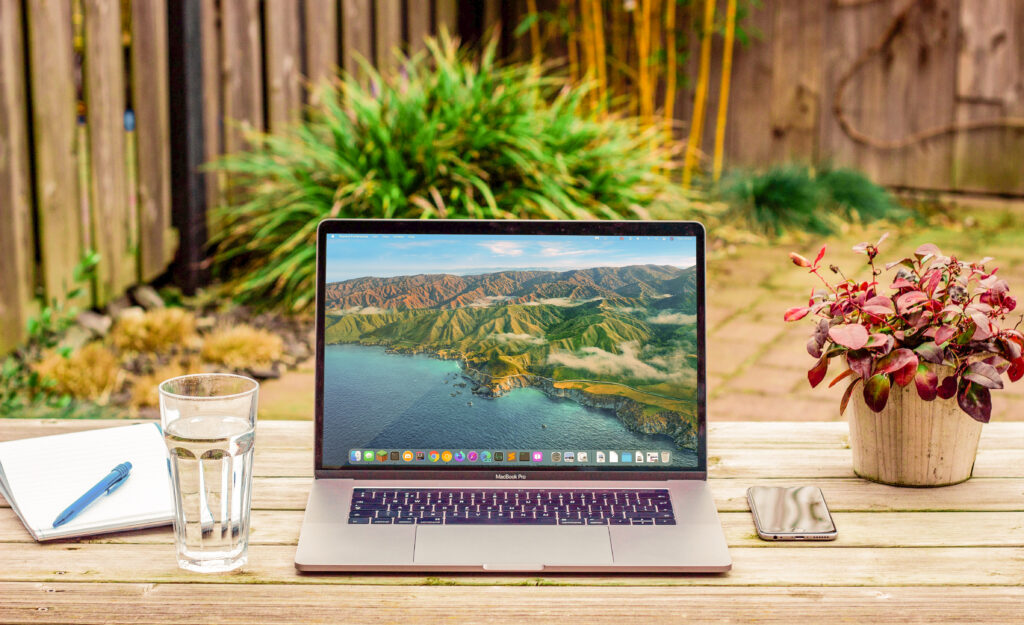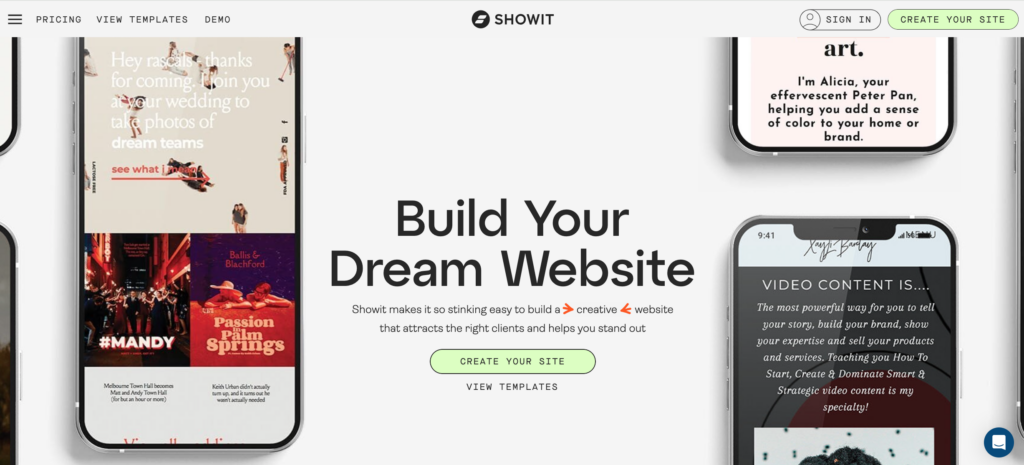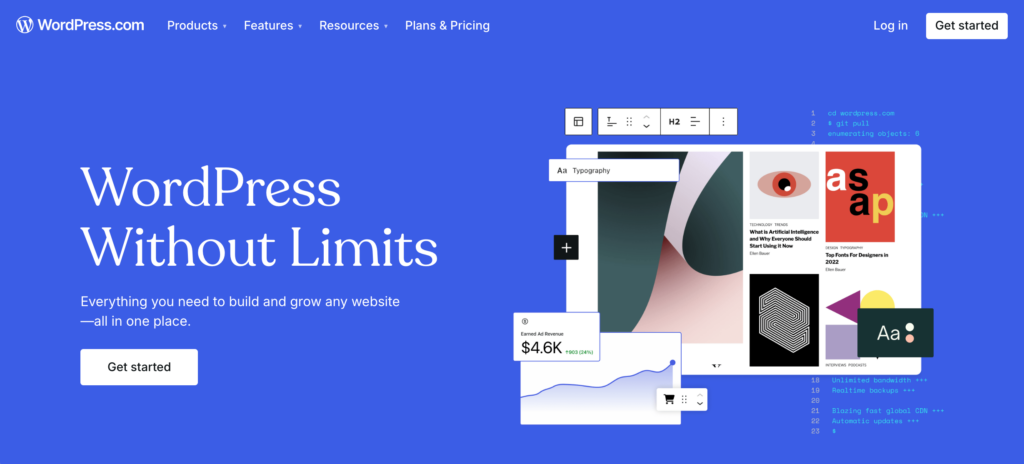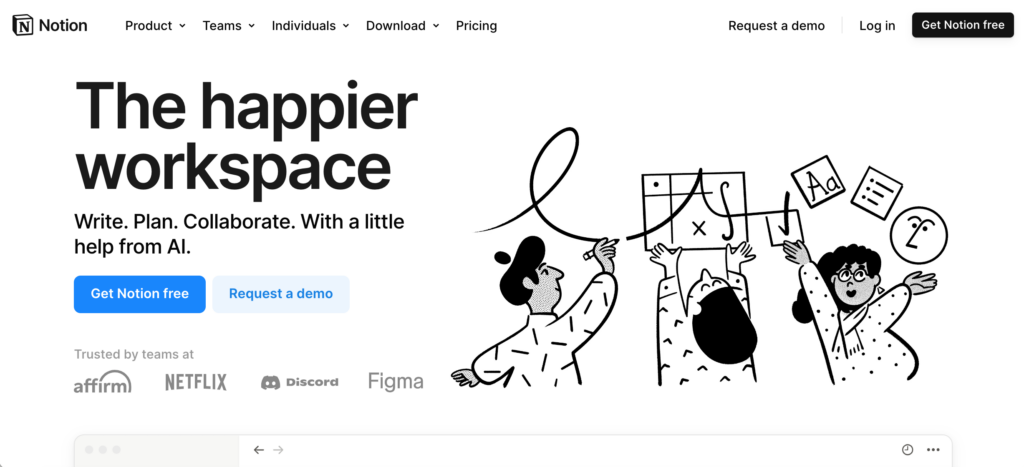Backpacking
Vanlife
Web Design
Branding
Book A Free Brand + Website Audit
We'll hop on a call to talk about your current online presence, including the branding on your social media, website, and anywhere else you hold space online. We'll see what's working, what's not, and how to improve it based on your goals.
hey, I'm alia
welcome, friends
hop The Blog
I've been running my little Brand Strategy + Web Design biz while traveling the world since 2020. "Sent Packing" is meant to help people along their own journey of building a small biz on the go.
The Design Guide series is where you'll find things like how to curate a brand that attracts your people and how to DIY your granola girl website. Subscribe to it HERE.
The Alia's Secret Travel Journal series is where I reveal all the crazy mishaps I've experienced traveling as a solo girl in her 20s. It's raw, humorous, and honestly chaotic - I hope you enjoy. Subscribe to it HERE.
Best Website Platforms for Digital Nomads

As a web designer and travel-loving solopreneur, I’ve spent years creating websites from all corners of the globe, whether it be parked by a scenic overlook in Colorado or chilling in some tiny Greek café. Here are the Best Website Platforms for Digital Nomads. It’s my two cents on where you should set up your virtual “camp,” no matter what you’re doing to bring in the cash (within reason, ya freaks).

Bloggers: ShowIt
For bloggers who crave design freedom, Showit is where it’s at. It’s got all the creativity of drag-and-drop design, but with WordPress’s blogging capabilities behind the scenes. You can fully customize your site without needing to touch a single line of code, which means you can let your personality shine through in every inch of your website. I use Showit for my own site, and the design flexibility is one of my favorite things about it.
P.S, I am not sponsored by them, but I am totally bias, which is why they are first on my list of Best Website Platforms for Digital Nomads!
Pros:
- Total design freedom with drag-and-drop functionality
- Uses WordPress for blogging, which means excellent SEO capabilities
- Scales easily as your blog grows
- Great for non-coders who still want full creative control
Cons:
- The design freedom can be overwhelming without a template or designer
- Slightly more expensive than some other platforms
Nomad-friendly features:
- Offline editing capabilities (great for those “no Wi-Fi” days)
- Easy integration with social media and site stats
Alternative: WordPress. If you’re looking for more flexibility with functionality or just want to go with a platform that’s a bit more established, WordPress is still a top choice for bloggers. It’s known to be the best for SEO and scales well as your blog grows. The downside? It’s got a steeper learning curve and requires a bit more ongoing maintenance. If you’re willing to invest the time to learn it, though, it’s a powerful tool for growing your blog.
![Why Creative Entrepreneurs Need a Personal Brand [2025]](https://adventurepreneurdesignden.com/wp-content/uploads/sites/51012/2024/12/46Artboard-5-819x1024.png)
If you want to read more things like this, click HERE to get a note the next time I make a Design Guide post.

Content Creator: WordPress
For YouTubers, podcasters, and multi-media content creators, WordPress offers all the features and plugins needed to showcase diverse content types. You can pull videos from any source and embed them right on your website without lengthening your loading page time.
WordPress is a good hub to lead your audience back to, which is crucial for building a brand and connecting with your audience across platforms.
Pros:
- Excellent media management for various content types (video, audio, images)
- Numerous themes and plugins specifically designed for content creators
- Easy integration with platforms like YouTube, Vimeo, and podcast hosts
Cons:
- Can be overwhelming with the number of options and settings
- Requires some time to learn and set up optimally
Nomad-friendly features:
- Scheduled posting for maintaining consistent content while traveling
- Mobile apps for managing your site on the go
Alternative: Squarespace. They are currently offering a free “Bio Site” which is a “link in bio” kind of page. This can be super helpful for content creators who don’t even want or need a full website, just a professional looking links page to get their people where they want to go.

Photographer: Squarespace
Squarespace is a go-to for many photographers, offering a balance of aesthetics and functionality. It makes it easy to create a professional-looking portfolio quickly, which is crucial when you’re balancing work and travel.
Pros:
- Beautiful, simple, mobile-responsive templates that showcase images well
- Easy to use, even for those not technically inclined
- Built-in e-commerce features for selling prints or services
Cons:
- Less flexible than WordPress for custom functionality
- Can become expensive as you add more features
Nomad-friendly features:
- 24/7 customer support, invaluable when working across time zones
- Robust mobile editing capabilities
Alternative: SmugMug, which offers more photographer-specific features like print fulfillment. I personally haven’t used SmugMug, so I can’t speak to it’s integrity, but I’ve heard it’s good if your website is solely dedicated to photography.

Nomadic Shop Owner: Shopify
For those running an online store while traveling, Shopify is hard to beat. It is specifically geared towards selling products and creating a seamless e-commerce experience for customers.
Pros:
- Excellent multi-currency support
- User-friendly inventory management
- Secure, reliable payment processing
Cons:
- Monthly fees can add up
- Transaction fees on some plans unless using Shopify Payments
Nomad-friendly features:
- Seamless integration with drop-shipping services
- Automatic tax calculations for different regions
Alternative: WordPress’s plugin, WooCommerce for those who need more customization and don’t mind a bit more complexity.
Side Note: Shopify has a feature called a “Buy Button” that you can subscribe to without subscribing to a whole Shopify website.
This feature lets you use all of Shopify’s purchasing and distributing software, so you can track digital and physical product sales. This means you can use any website platform of your choice and add a small shop by embedding the “buy button” on to your site.
I suggest using this if you only have a few products that you are selling. I used it to sell website templates in the very early stages of my business (read how I started my little biz HERE), and it was seamless.

Service Provider: WordPress
For freelancers, social media managers, and other service providers, WordPress offers the most flexibility and features.
Pros:
- Numerous booking and scheduling plugins available
- Ability to create membership areas or online courses
- Highly customizable to fit various business needs
Cons:
- Can be overwhelming with too many options
- Might require some technical skills or willingness to learn
Nomad-friendly features:
- Plugins for managing appointments across time zones
- Multi-language support for reaching a global clientele
Alternative: Squarespace, if you prefer a simpler setup and don’t need extensive customization. If you are on the less tech-savvy side of things, I would go with Squarespace.
![Why Creative Entrepreneurs Need a Personal Brand [2025]](https://adventurepreneurdesignden.com/wp-content/uploads/sites/51012/2024/12/46Artboard-5-819x1024.png)
If you want to read more things like this, click HERE to get a note the next time I make a Design Guide post.

Digital Course Creators: Notion
Notion has become a go-to platform for many digital nomads creating and selling courses, thanks to its flexibility and ease of use. It allows you to structure your courses in a way that makes sense for you and your students. Notion has a drag-and-drop website builder along with all of it’s CRM capabilities, although it is not as versatile as other website platforms. I would suggest using Notion only for your course and using a different website platform for your public-facing website.
Notion is not a traditional course platform, but its flexibility can be a major advantage for nomads who need to adapt quickly. I have personally bought a lot of online courses, and as a user, Notion has been my favorite platform to learn in.
I also use Notion as a note-taking, organization and management tool. It’s super easy to navigate, and BONUS, it has a tremendous free membership option. It’s where I draft all my blog posts, including this new one: Client Showcase “The Wandering Bride”
Pros:
- Highly customizable workspace for organizing course content
- Collaborative features for working with team members or students
- Can create public pages to share or sell your courses
Cons:
- Lacks built-in payment processing (you’ll need to use a third-party service)
Nomad-friendly features:
- Excellent offline capabilities for creating content without reliable internet
- Mobile app for managing your courses on the go
Alternative: WordPress with LMS plugins like LearnDash or LifterLMS. This option gives you more control and ownership but requires more technical know-how and maintenance.
A word of caution: Everyone I personally know who has used ThriveCart to create their course has hated it. Do with that info what you will…

Multi-Faceted Nomads: WordPress
For digital nomads juggling multiple projects or frequently changing focus, WordPress is likely the best all-around choice. If you haven’t noticed, it can pretty much do everything if you can take the time to learn how it works. That being said, don’t just get WordPress because it can do everything and comes up everywhere on my list of Best Website Platforms for Digital Nomads. The learning curve is high, and there is great value in navigating your own website back-end with ease, which is why there are so many other website platforms out there.
The versatility of WordPress means you can have a blog, portfolio, online store, and offer services all on one platform, which is ideal for nomads with diverse income streams. (You’re out here doing everything all at once, I know you!)
Pros:
- Adaptable to almost any type of website
- Strong SEO capabilities to help you get found online
- Huge community for support and resources
Cons:
- Requires more time investment to learn and maintain
- Can be overkill for very simple websites
Nomad-friendly features:
- Travel map plugins to showcase your journey
- Flexibility to quickly change your site’s focus or add new sections
Alternative: Squarespace, for a simpler website. ShowIt for a website with more freedom and control over the design.
Side Note: Use the Shopify “Buy Button” to add selling digital or physical product capabilities to any website platform.
Advice for the Next Adventurepreneur
- Themes: WordPress has drag-and-drop themes (like Divi, Elementor, and Beaver Builder) that can help simplify the build process. Some of them cost a pretty penny, but they’re worth it if you’re not a coder.
- YouTube is Your Friend: There are TONS of tutorials for every platform mentioned here. I guarantee there’s a YouTube video out there that walks you through whatever you need. Start with a beginner tutorial for your platform and go from there.
- Hire a Pro: If you have the funds, hiring a web designer could save you a ton of time and frustration. Pick someone you vibe with, and don’t just go with whatever platform they’re most comfortable using. Find the designer and platform that fits your needs.
- DIY: If you want to DIY it, check out this blog post on what NOT to implement on your website: 6 Sneaky Website Tricks That Manipulate Visitors
There are definitely good website platforms that I haven’t mentioned here, but these are definitely my top picks for nomads. I hope you can use this as a solid starting point for picking your website platform and building a site that works for you!
Have you had any standout experiences with these platforms while traveling? Share your stories in the comments—your insights could help fellow nomads make their choice!
Love you, good luck, stay sane.
Alia
Next time on Sent Packing: Design Guide
Client Showcase, The Wandering Bride – A Yosemite Wedding Planner Rebranding Project: Jess specializes in organizing weddings in Yosemite National Park, creating awe-inspiring, unforgettable experiences for couples who’d rather say their vows under a towering sequoia than in a traditional venue. Take a look at her brand design process!
![Why Creative Entrepreneurs Need a Personal Brand [2025]](https://adventurepreneurdesignden.com/wp-content/uploads/sites/51012/2024/12/46Artboard-5-819x1024.png)
If you want to read more things like this, click HERE to get a note the next time I make a Design Guide post.
Leave a Reply Cancel reply
Follow The Adventure
Join the Pack and get notified when new blog posts drop! Choose what you'd like to keep up with (no spammin' here).
All Set - Welcome to the Pack!
You're officially a new member of the Adventurepreneur Pack! Keep an eye out for updates in your inbox. Thanks for keeping me company (;
Backpacking
Vanlife
Web Design
Branding
Book A Free Brand + Website Audit
We'll hop on a call to talk about your current online presence, including the branding on your social media, website, and anywhere else you hold space online. We'll see what's working, what's not, and how to improve it based on your goals.
hey, I'm alia
welcome, friends
hop The Blog
I've been running my little Brand Strategy + Web Design biz while traveling the world since 2020. "Sent Packing" is meant to help people along their own journey of building a small biz on the go.
The Design Guide series is where you'll find things like how to curate a brand that attracts your people and how to DIY your granola girl website. Subscribe to it HERE.
The Alia's Secret Travel Journal series is where I reveal all the crazy mishaps I've experienced traveling as a solo girl in her 20s. It's raw, humorous, and honestly chaotic - I hope you enjoy. Subscribe to it HERE.